Trekking in Sapa: A Guide to Nature and Culture
Tucked in the northern mountains of Vietnam, Sapa is a refuge for adventurers. Trekking in Sapa offers all this and more, regardless of your love for the promise of breathtaking views, terraced rice fields, or cultural immersion. It’s about entering a universe of natural beauty and rich legacy, not only about walking. Let MOTOGO Tours explore
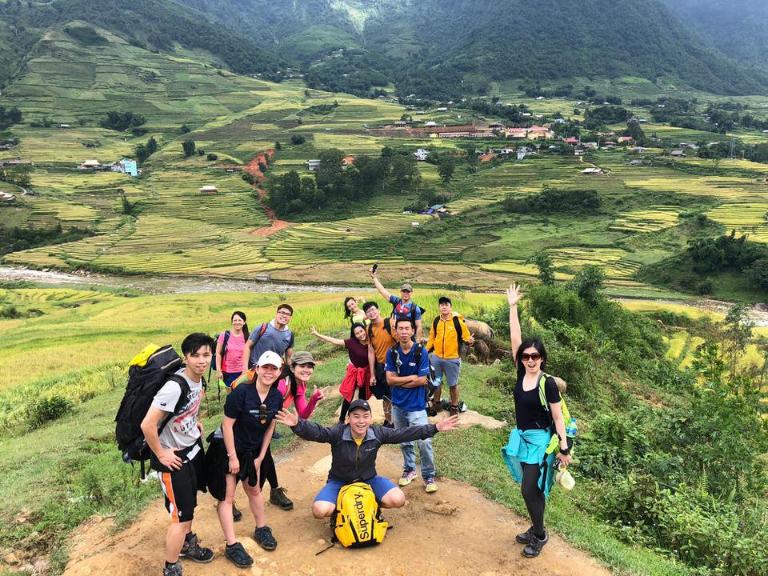
Why Sapa is a Trekker’s Paradise
Trekking is easy in Sapa, which is in the center of the Hoang Lien Son mountain range. Sapa feels like a natural paradise with its spectacular settings—lush valleys, foggy mountains, rivers cut through verdant rice terraces. One of the few locations in Vietnam where you may still encounter genuine hill-tribe communities, trekking here lets you see nature in her most unspoiled form.
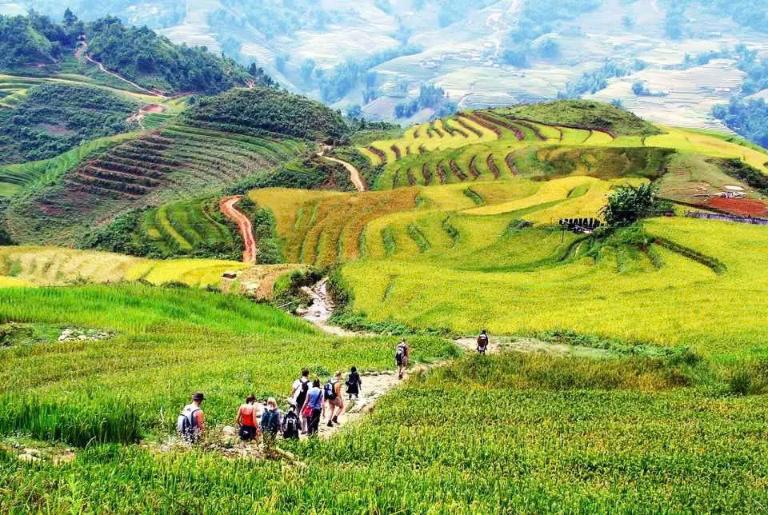
Apart from its splendor, Sapa provides well-kept paths fit for all levels of hikers. Sapa has it all whether your goal is to ascend the highest peak in Indochina, the Fansipan, or a short stroll to visit a village.
The Best Trekking Routes in Sapa
Regarding treking, Sapa is a fantastic location. Its varied topography, breathtaking scenery, and rich cultural legacy offer an outstanding setting for outdoor pursuits. These are some of the top paths for treking in Sapa that guarantee an amazing trip.
Fansipan Trek: Conquering Vietnam’s Highest Peak
Rising at 3,147 meters, Fansipan—also referred to as the “Roof of Indochina—is the highest peak in Vietnam. Depending on the path you decide over, the journey to Fansipan usually last 2-3 day. Starting in the town of Sapa, the most often used path climbs through deep forests across numerous mountain slopes to the top.
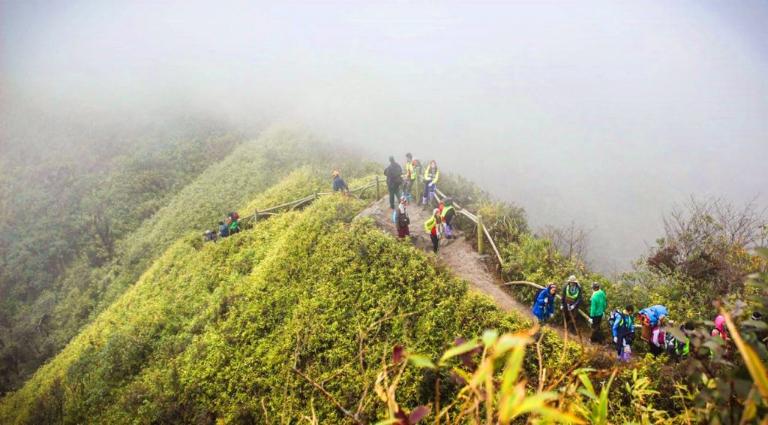
Although climbing Fansipan is an exciting endeavor, it is not only about the physical achievement. Offering a bird’s-eye perspective of Sapa and the environs, the panoramic views from the top are really amazing. From rich forests covered in moss-covered trees to rocky settings with alpine plants, the walk also passes through several ecosystems.
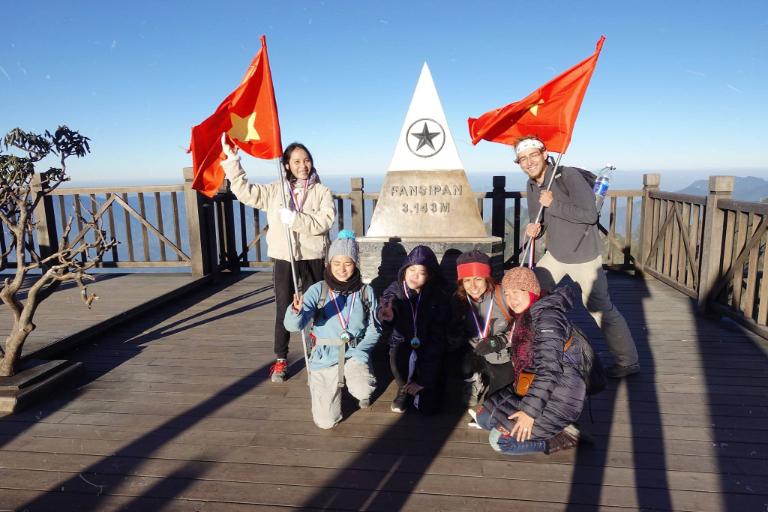
Trekking Fansipan is physically taxing, hence before trying the ascent, one should be in decent form. There are parts of the trail that call for basic climbing ability, however it can be steep and rocky. If you’re not at ease with long walks or high elevations, think about paying a guide or choosing the cable car to get to the top.
Muong Hoa Valley Trek
One of the most beautiful places in Sapa, Muong Hoa Valley presents a tranquil, gorgeous scene filled with terraced rice fields and traditional ethnic minority towns. The H’mong, Tay, and Giay peoples call the valley home; a trip through this area is a fantastic chance to learn about their culture while savoring amazing vistas.
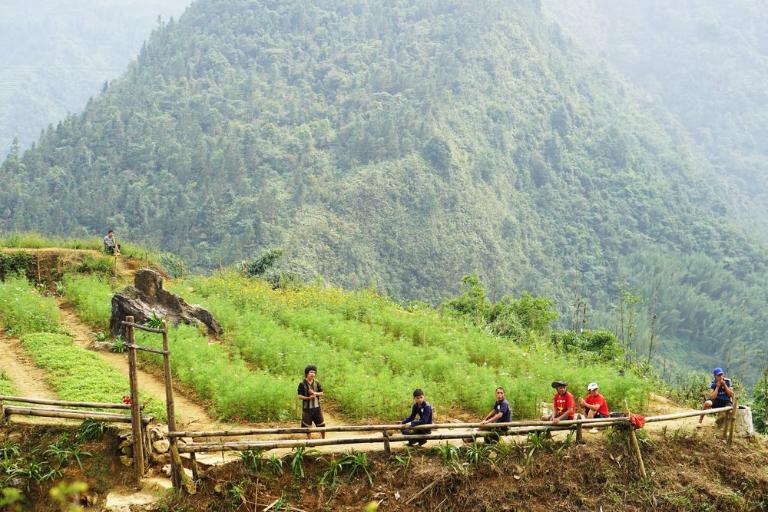
Those who wish to enjoy the native way of life and soak in the breathtaking natural beauty of the Muong Hoa Valley walk is ideal. Usually beginning in the town of Y Linh Ho, the journey descends into the valley and passes via towns including Lao Chai, Ta Van, and Giang Ta Chai. Trekkers will view terraced rice fields, waterfalls, and classic wooden homes along the path.
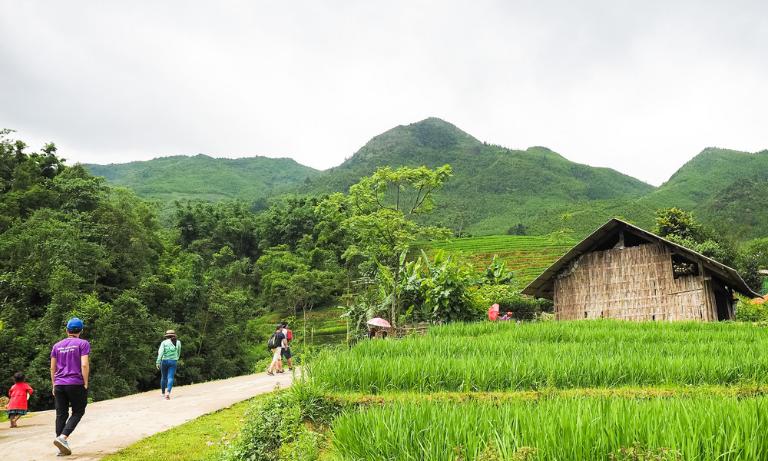
Those who are interested in cultural immersion will find perfect fit for this trip. You will have the opportunity to meet locals, stay in homestays, and learn about the culture and beliefs of the ethnic minority in the area. Stunning views of the terraced rice fields, mountains, and the Muong Hoa River abound in the valley itself. The path is also rather simple, which qualifies for families with children or beginners.
Sapa – Cat Cat Village – Sin Chai Village
Starting your adventure at the little Sapa Church, about 2.2 kilometers away is the path to Cat Cat Village. Once you have an access ticket, you will be able to meander around this charming town and really absorb its own culture and breathtaking surroundings.
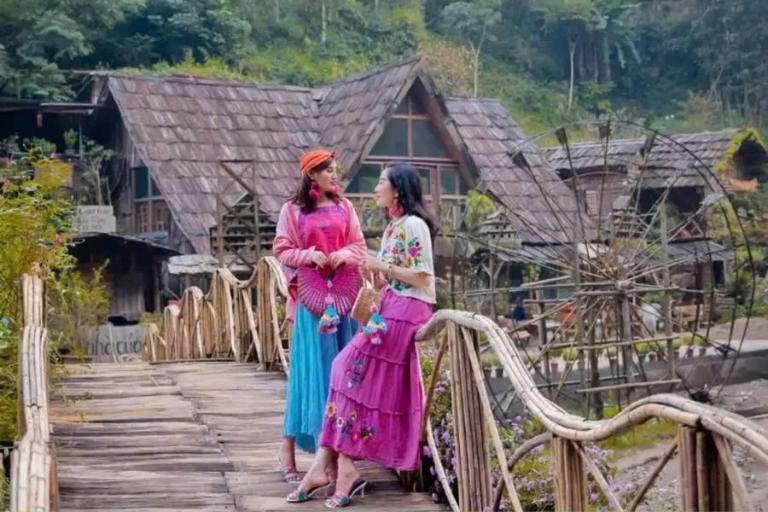
From Cat Cat, keep exploring the way across the magnificent Muong Hoa Valley for three kilometers to finally reach the calm and unspoiled Sin Chai Village. Sin Chai, well-known for its unspoiled beauty, is still a secret treasure providing a quiet haven into the arms of nature.
Tram Ton Pass – Mount Fansipan
Beginning in the famous Tram Ton Pass, this difficult journey will take you up to the highest peak in Vietnam, Fansipan Mountain. Prepare to be enthralled with the breathtaking views of mountainous mountains and tough terrain along the journey. Set up camp, have a well-earned dinner, and relax beneath the starry sky at the 2,800-meter mark.
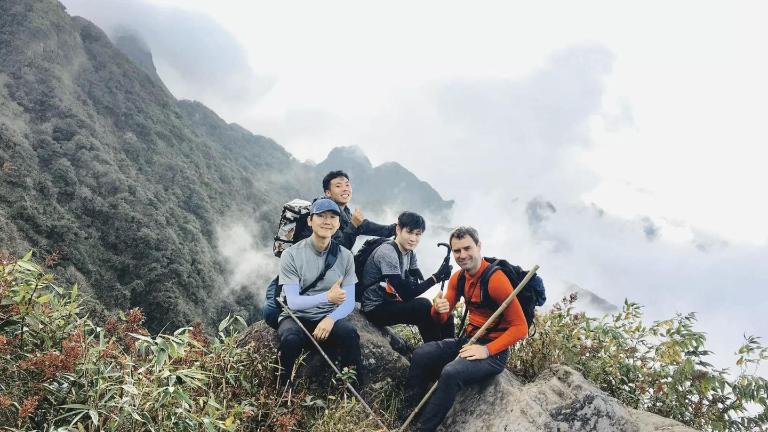
Rise early on the second day to see a magnificent sunrise over the mountains; this experience will remain with you always. After taking in the scenery, push forward and, within roughly 1.5 hours, top Fansipan. Here you can enjoy Sapa’s and beyond panoramic vistas before saving your strength for the walk down.
Sapa – Love Waterfall – Silver Waterfall – Y Linh Ho – Ta Van
Your journey starts with a motorbike ride to Tram Ton Pass and then a 1.1 kilometre walk down the river to reach the breathtaking Love Waterfall. Once you have savored the splendor of this natural beauty, climb back on the motorbike to carry on your trip to another breathtaking sight in the area, Silver Waterfall.
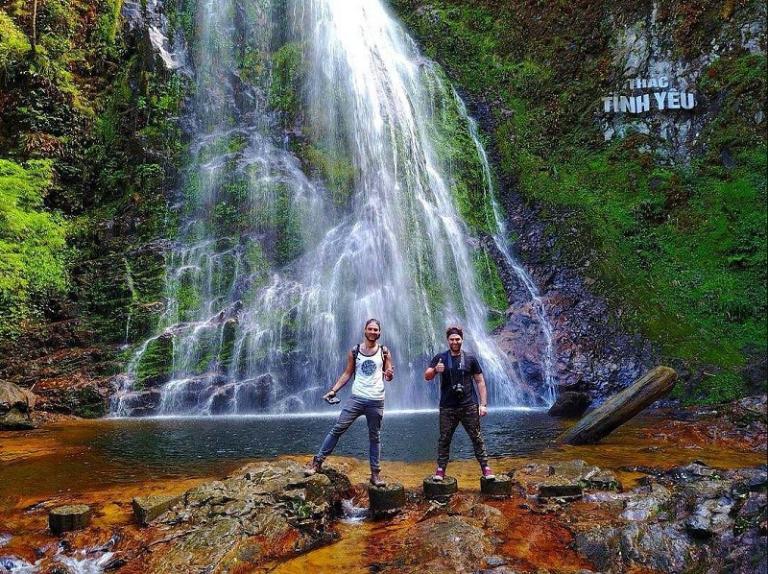
From here, keep along the picturesque Muong Hoa Valley to Sin Chai Village, the Red Dao people live. Your stop for the evening will be a friendly homestay where you can relax and have a traditional dinner.
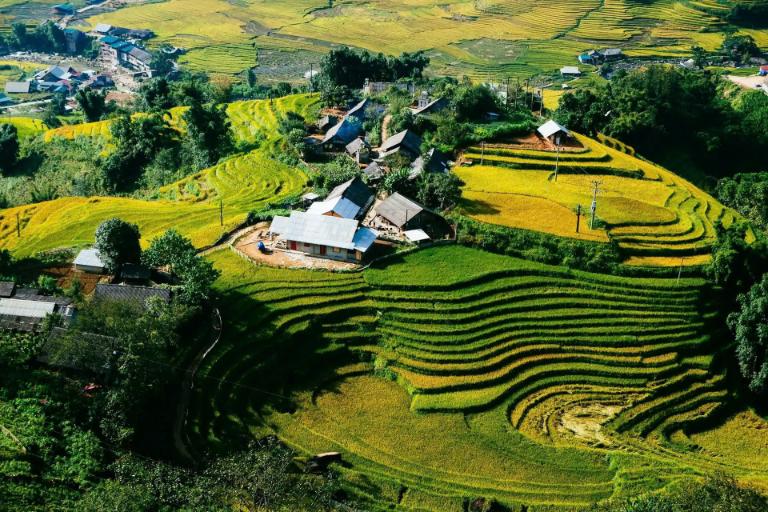
Starting your return to the town center on day two, stop at the lovely towns of Y Linh Ho and Ta Van along the way. Remember to ask the residents to lead you to the well-known suspension bridge so you may marvel at the calm river and waterfalls in distance.
Sapa – Ta Phin – Ta Giang Phinh
Set off from Sapa Church on day one and hike across the gorgeous terraced rice fields to Ma Tra Village. Before going to the Red Dao town of Ta Phin, stop to relax and savor a substantial dinner.
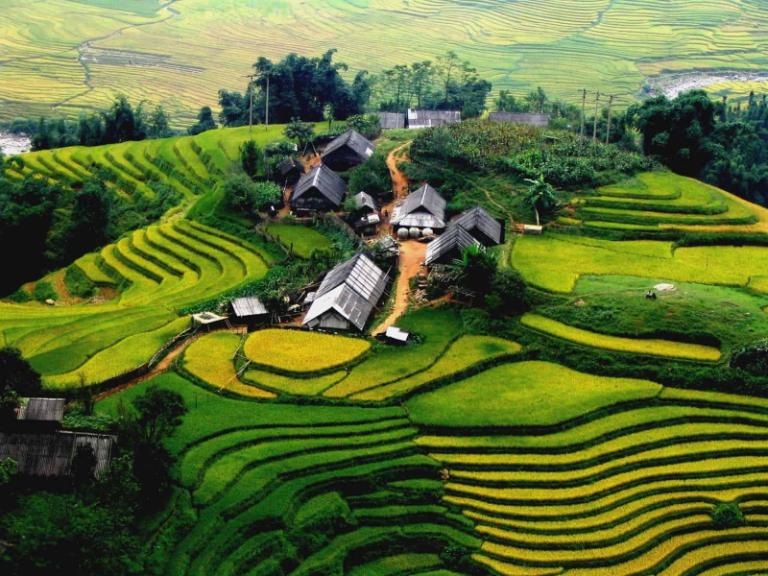
Day two transports you farther into the heart of Sapa’s rural splendor, over verdant forests, wide rice terraces, and lush hills until you arrive at Phin Ho Village, where you may relax and savor lunch. Then keep downhill, passing past rice fields to Lu Khau Village, renowned for its salmon farms, before arriving to Suoi Thau Village for an overnight homestay
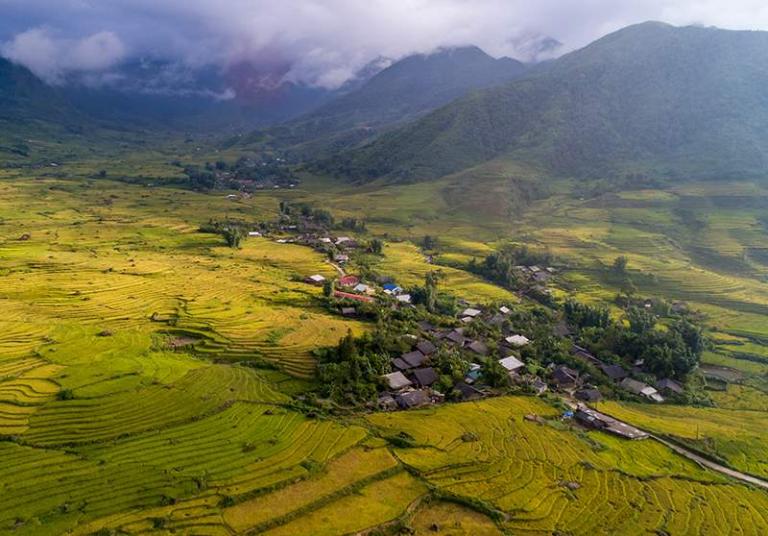
Spend the last day fully immersed in the daily life of the Red Dao people, touring Suoi Thau Village first then Gia Thau Village to appreciate more amazing terraced fields. Following a great lunch in Kim Ngan Village, head on to Ta Giang Phin Village to explore the unique highland culture. Should you find yourself tired at this point, you can hail a taxi to return to the town for relaxation.
What to Expect on a Trekking Adventure in Sapa
More than merely stunning scenery, Sapa provides a venue for you to learn about the way of life of ethnic minorities, experience their culture, and get understanding of rural Vietnam.
Stunning Landscapes and Views
The range of settings you will come across on your trip will astounds you. From the broad terraced fields to the deep forests of pine and bamboo, Sapa’s sights are a photographer’s fantasy. You will cross rivers, stroll along mountain ridges, and stop at breathtakingly beautiful vistas.
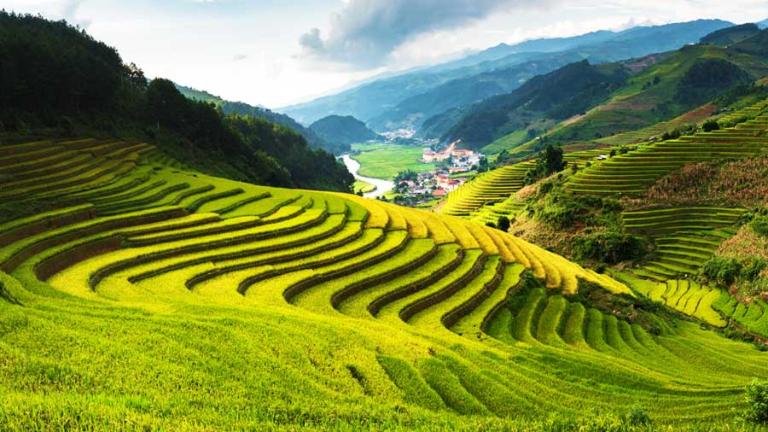
The Unique Ethnic Villages
Among the various different ethnic groups that call Sapa home are the Giay, Dzao, H’mong, and Tay. These people have kept their customs, unique architecture, and bright attire as well as their traditional way of life. You will travel through these towns while you hike, where you may meet residents, learn about their way of life, and maybe buy handcrafted items.
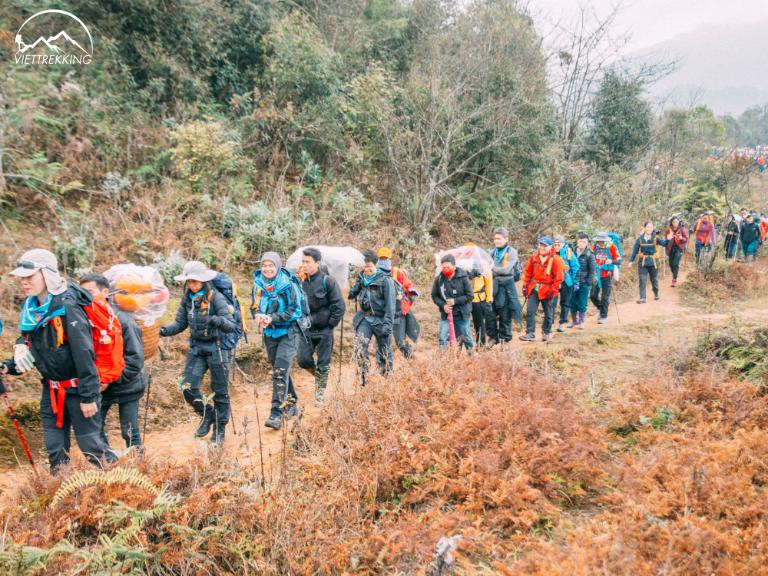
The Cultural Experience
Trekking in Sapa is a cultural trip as much as a physical one based on environment. Along the trip, some of the most pleasant and welcoming individuals you will encounter in Vietnam Many hikers decide to stay in homestays with nearby families so they may savor traditional cuisine and learn about mountain life. The trip is much more unforgettable because of this personal link.
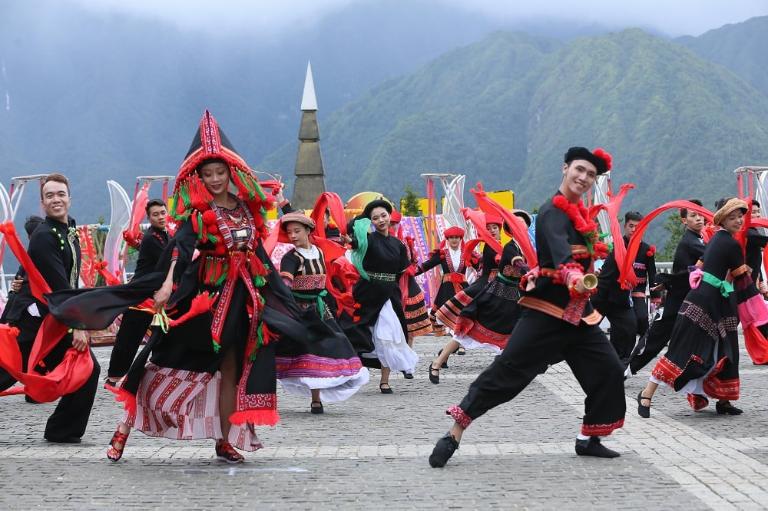
Tips for a Successful Trekking in Sapa
Here are some basic pointers to guarantee you have the finest trip across Sapa.
Preparing for the Terrain
Sapa’s terrain can be difficult; steep ascents, muddy slopes, and rocky roads abound. Prepare yourself physically for the walk and pack strong, well-gripped shoes. A smart suggestion is waterproof shoes or sandals since some paths may involve river crossings.
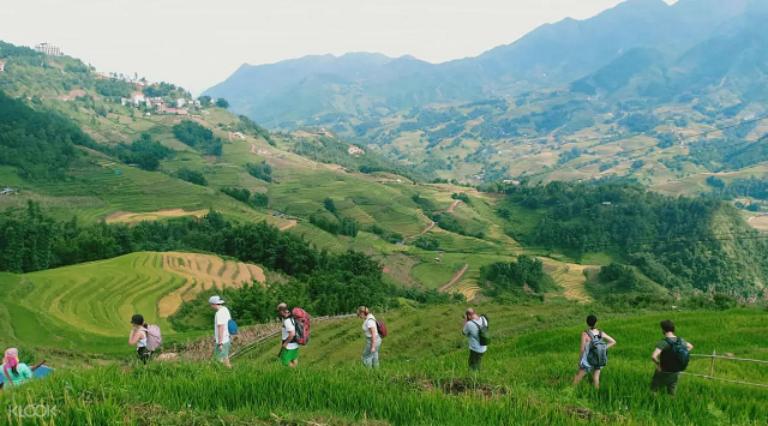
What to Pack for Your Trek
Trekking in Sapa calls for light packing. Emphasize basics including a rain jacket, sunscreen, a hat, and cozy clothes. Additionally useful would be a little rucksack including snacks and a water bottle.
- Clothing Recommendations: Wear light, moisture-wicking clothes that will keep you comfortable in cooler evenings and manage the heat during the day. Additionally advised is a pair of sturdy ankle supporting trekking boots or shoes.
- Gear and Essentials: Gear Along with clothes, pack basics like a camera to record the breathtaking vistas, a first-aid kit, and a flashlight. Given the fast changes in mountain weather, you also desire a small rain poncha or jacket.
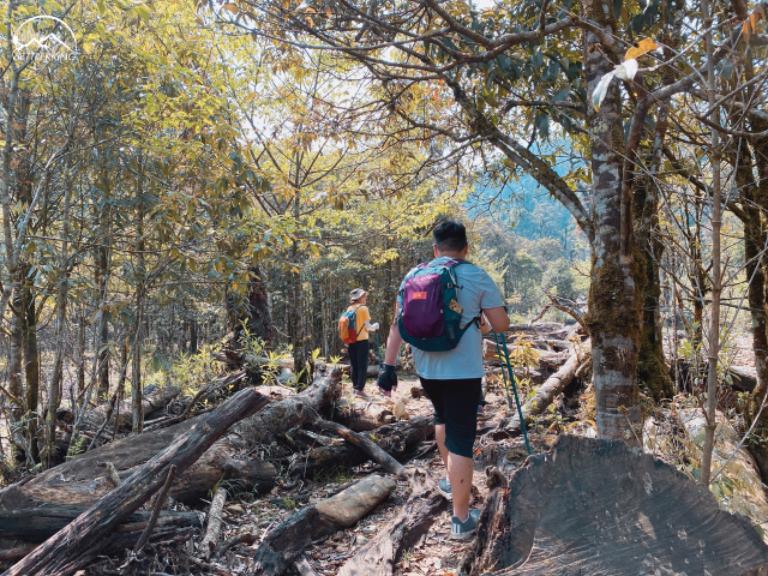
Safety Tips and First Aid
Trekking in Sapa can be physically taxing, hence you should pace yourself and stop often. Keep hydrated; if you are not sure of a trail, think about paying a local guide. Having some basic first-aid knowledge—such as how to heal cuts, blisters, or dehydration—always makes sense.
How to Choose the Right Trekking Tour in Sapa
The difference in your Sapa experience could be entirely dependent on the chosen hiking tour. Whether you choose to go with a guide or trek alone, choose the tour that fits your experience level and desired outcome of the travel.
Guided Treks vs. Solo Treks
Local knowledge can be a benefit of a guided trip, which will improve your experience and help you to better appreciate the scenery, animals, and cultures you come across. When negotiating challenging terrain, guides also are quite helpful. On the other hand, a solo trip would be a great fit if you enjoy the flexibility of discovering at your own speed and are an experienced hiker. Just be sure you have dependable means for communication and a good map.
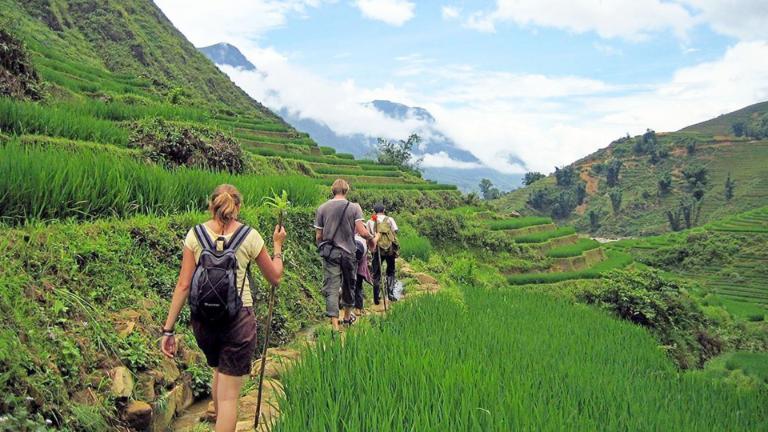
What to Look for in a Trekking Guide
Choose a guide someone who speaks your language, is familiar with the location, and has background in outdoor safety. A professional guide will not only point you in the direction but also offer perceptions about the local surroundings and culture. Selecting a guide who values and follows ethical trekking techniques is also crucial to guarantee a good influence on the surroundings and local population.
Trekking in Sapa presents a unique experience with amazing views, a window into the life of ethnic minorities, and a real connection to the environment. Sapa has everything for every kind of visitor whether your trip is to the top of Fansipan or to discover peaceful Muong Hoa Valley hamlet. Trekking in Sapa can be the lifetime experience with the correct preparation, a feeling of adventure, and respect of indigenous traditions.
Related Posts:












Be the first to comment!